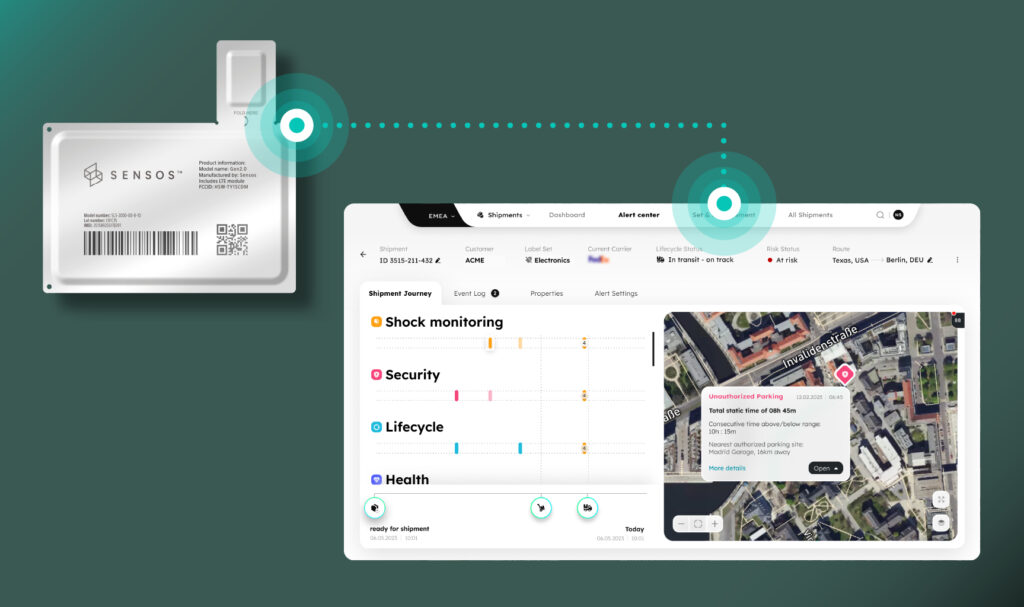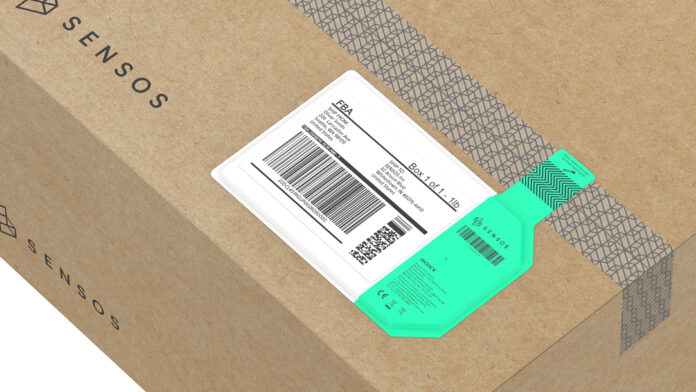Pairpoint, the blockchain-based trading venture owned by Vodafone and Japanese trading company Sumitomo Corporation, is working with smart label pioneer Sensos, a spin-off from Sony Semiconductor Israel, to combat supply chain fraud. They have combined the former’s so-called Economy of Things platform with the latter’s IoT tracking solution. US-based logistics operator Unilog is testing the joint solution at sites in the US and Europe.
Vodafone and Sumitomo announced an 80/20 joint-venture in 2023 to offer automated IoT transactions on blockchain technology, under the ‘Economy of Things’ banner. Vodafone pitched in its blockchain-based Digital Asset Broker (DAB) IoT trading platform. Sumitomo has invested capital into the business. Pairpoint says it is supported by an investment of €60 million from both companies; it employs 50 staff in the UK and Portugal.
Sensos, pun-off from Sony Semiconductor Israel in 2023, also, is important as an early pioneer of smart label technology, incorporating a printable label with IoT sensors. Its original iSIM-based smart-label solution was used in a prototype deployment at German pharmaceuticals firm Bayer, in partnership with Kigen, Murata, and Vodafone. It has since been picked up by DB Schenker, plus others. In February, it closed a Series A round worth $20 million, which included support from Sumitomo.
Since the original smart label was first released in 2020, the company has developed its solution further as a “proactive supply chain management solution” that integrates a “unique AI-based control tower”. The ‘control tower’ collects and analyses data, and issues alerts. Sensos is targeting cold-chain logistics, mission-critical shipments, and high-value goods, it said. Vodafone has remained close; it issued a blog last year about its commercialisation efforts with Sensos.
The new Pairpoint tie-up appears to be one result of that effort. A statement explained: “Using Sensos’ cellular tracking labels and AI-powered control tower to detect supply chain anomalies alongside Pairpoint’s digital identity, trust, and transactional platform, all goods’ movements – from port departures to final deliveries – can be securely and immutably recorded. Goods are then authorised to make automated payments using blockchain technology and smart contract(s).”
The pair explained the integration as blockchain transactions (“Pairpoint’s secure technology overlays…”) on top of data analytics (“Sensos’… supply chain management solution…”) on top of iSIM airtime (“through the Pairpoint-enabled iSIM…”) on top of a printable sensor device (“and device agent software embedded into a smart label”). They said it makes “every logistics transaction verifiable, transparent, and resistant to tampering” – to combats fraud and raise trust.
Unilog, part of ICL Group, is testing the solution at “several sites in US and Europe”. Osi Tagger, chief executive at Unilog, commented: “Technology underpins superior supply chain management together with deep insight and a strong solution. By navigating across numerous partners, we can deliver a seamless set of robust services for customers that build on the strong Sensos and Pairpoint alliance.”

Jorge Bento, chief executive at Pairpoint, said: “We are excited to work with Sensos to bring the Economy of Things capabilities to the wider supply chain sector. There are billions of parcels and pallets operating across supply chains, and this partnership has huge potential to make them intelligent and equipped for e-commerce through globally connected cellular labels and the Pairpoint platform.”
Aviv Castro, chief executive at Sensos, said: “This collaboration represents a major step towards a more resilient and trustworthy supply chain ecosystem. By integrating Pairpoint’s blockchain technology with our AI-powered control tower, we are empowering businesses with unprecedented security over their supply chains, and by proxy granting them more business agility that translates into bottom line savings.”

